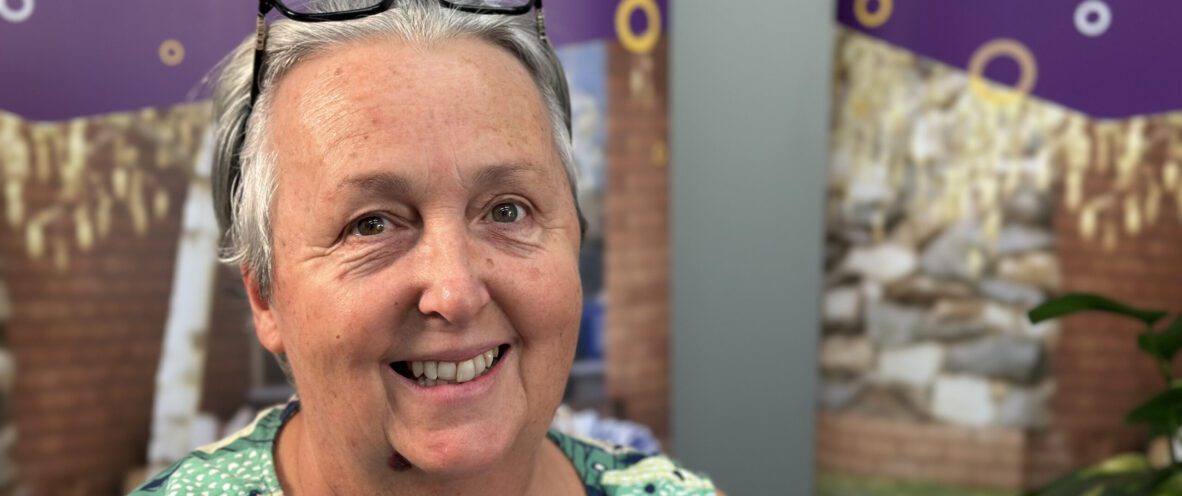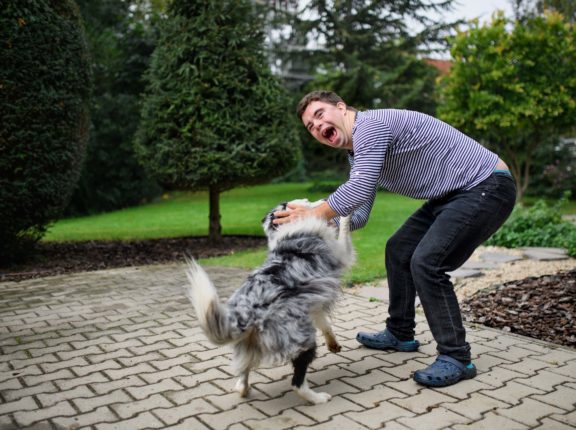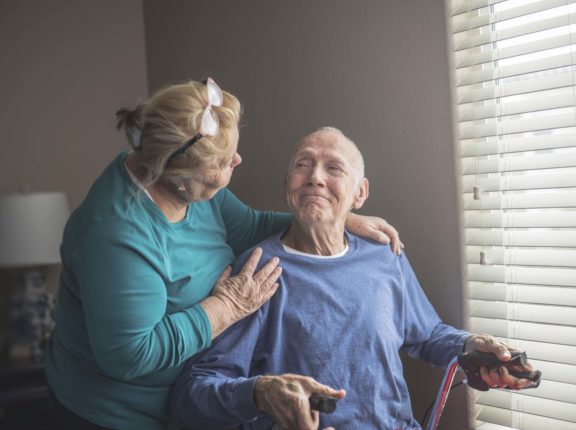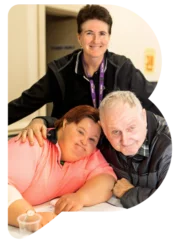May 12 is International Nurses Day, a day when we acknowledge and celebrate the enormous contribution and commitment of nurses everywhere. To mark this important day, we caught up with LiveBetter Clinical Nurse Specialist Team Leader, Rosie Dowd. We wanted to learn a little more about Rosie, what inspires her unwavering dedication to our customers, not to mention her no-nonsense approach to just ‘getting the job done’.
Rosie has worked at LiveBetter for 16 years, and in that time, she has seen significant change, both within the organisation and across the sector. What has remained a constant for Rosie is her passion for those who are marginalised or disadvantaged, a passion which she brings to bear on all that she does.
Early years
Having grown up in Orange, Rosie couldn’t wait to head for the big smoke, and at the age of sixteen, she packed her bags and moved to Sydney to study nursing.
“I had the responsibility of a household when my mother died, and I guess I felt that I needed to get out of Orange. So, I went to Sydney and began the search for my own identity.”
She wasn’t there long before a serious car accident nearly claimed her life, and she was forced to return, temporarily, to Orange while she recovered from her injuries.
But Sydney was where she wanted to be, and, as soon as she was able, she returned and began working as an Assistant in Nursing (AIN) at the Mathew Talbot Hostel.
Located in Woolloomooloo, Mathew Talbot Hostel provides shelter and support to Sydney’s homeless men. It wasn’t long before Rosie was running the ‘Proclaimed’ area of the hostel. This was an area where they cared for intoxicated men, those who had been picked up off the street by the police, or Mission Beat.
“They would be safer with us than in a cell. There would be about 25 beds in one big open space where these men would be brought. They would be under the influence of alcohol, and some drugs, and sometimes they were very aggressive. We’d look after them, and they’d sleep it off…and then get up and go.”
Rosie went on to be the Assistant Manager of the hostel, which some evenings would see up to 500 men line up for a hot meal.
“I loved that job – the experience of working with a group of very marginalised people that no one seemed to care about. I still miss those men.”
Rosie’s experiences working with the homeless, and her observations regarding the way they were treated by the rest of society, even those in the care sector, went on to shape her, both personally and professionally.
“I am drawn to people who are disadvantaged, or who are different. The people I met on the streets in Sydney are some of the most genuine people I have met in my life. Who are we to judge the value of another human being?”
Around the same time, something significant was emerging that was to prove pivotal to Rosie. This was 1980’s Inner Sydney and the impact of HIV AIDS was starting to be felt by the community. In those early days, little was known about the disease, and those battling HIV often found themselves experiencing discrimination and isolation, and many were left to suffer and die alone.
For Rosie, who lost both a brother and an uncle to the epidemic, this was personal. There was no doubt in her mind that everyone, no matter who they are, deserves to feel cared for in life, and everyone, no matter who they are, deserves to feel cared for as they approach the end of life.
“I don’t think anyone should have to leave the planet without someone with them, holding their hand saying it’s OK, it’s safe. It’s time to go. Just like when we’re born. It doesn’t matter who they are.”
LiveBetter
Rosie worked at Mathew Talbot Hostel for 18 years, before deciding to return to Orange to raise her children, Maddison (now 26) and Louis (21). Upon her return, Rosie worked with people living with profound disabilities at the now-closed Riverside residential facility before starting work as a case manager at LiveBetter.
Keen to complete her nursing studies, Rosie, by now a single parent, worked around the clock balancing the needs of small children, her study commitments, and her day job – a workload many would struggle to manage, but not Rosie, who just powered on, regardless.
In 2011, the Grand Western Lodge, a boarding house for people with disabilities in Millthorpe, closed down, and some of the former residents were moved into LiveBetter Supported Independent Living (SIL) houses. Many had mental health conditions, and it soon became clear that they would need a nurse to supervise their care. This was the perfect opportunity for Rosie, who had now graduated and was a registered nurse, and it was an opportunity she embraced wholeheartedly.
Where to next?
The next journey for Rosie is end-of-life care, and soon she will be completing the End-of-Life Doula course. Similar to a birth Doula who provides support and care to a mother before, during and after childbirth, an end-of-life Doula provides care and support to the dying, and those who care for them. True to form, Rosie will continue to live and breathe her passion for the marginalised, and her belief that no one should be left to die alone.
Quick questions:
- What is the best thing about your work?
“The people.”
- What is the most challenging thing about your work?
“The funding – or the lack of funding [in the sector].”
- Top tip to manage work-life balance?
“I guess it’s about taking a breath. You can still work a lot, as long as you’re kind to yourself, and you look after yourself. Don’t take yourself too seriously.”
- What keeps you going, getting up and doing it all again, each day?
“I guess the people again. The fact that my job is not mundane, it’s not the same every day.”
- Hopes for the future.
“I hope that everyone gets to have more choice – in their life, and in their death.”
- If there was one piece of advice you could give to others who are starting in the community sector, what would it be?
“You need to have passion. You have to have passion for people who have less than you -whether that be less physical ability, or money, or cognition. Passion is the biggest thing.”




